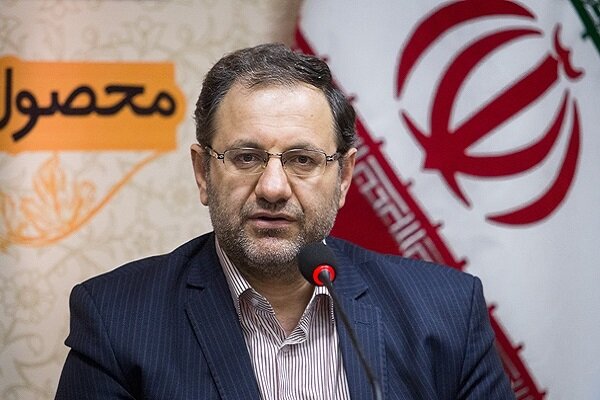Raisi not seeking to limit foreign policy dynamism, MP says

TEHRAN - The spokesman for the presiding board of the Iranian Parliament says contrary to the claims of some people, the Raisi administration does not seek to limit foreign policy dynamism and the nuclear negotiations with the hope of revitalizing the 2015 nuclear deal will be pursued based on national dignity.
"In his remarks during the election campaign, President Ebrahim Raisi explicitly stated that the way he and his administration will solve the country's problems is different from the previous administration,” MP Seyyed Nezamuddin Mousavi told the Mehr News Agency on Friday while pointing to the mechanism of the Raisi administration for negotiations.
Mousavi said the new administration “comprehensively examines the country's problems and issues” and presents a “fundamental solution” for addressing them.
The MP stated that since Raisi and many of his supporters are seriously critical of Rouhani's approach to running the country, which has led to many current problems, a new approach should naturally be taken in various areas in regard to negotiations.
“Administration is using foreign policy capabilities”
The MP from the Tehran constituency noted, "This does not mean that we should not use the positive experiences of the past. Some people promote this impression that the Raisi administration does not intend to use the capacities of foreign policy or seeks to limit the foreign policy dynamism, which is not the case at all."
The MP pointed out that the current administration would definitely use the foreign policy capacities to solve problems and create new capacities for the country.
"The root of most of our country's problems is that we did not use our internal capacities properly."
"The difference between the Raisi administration's approach in foreign policy and previous administrations is that we will be active and innovative in foreign policy, and we will not be passive and we will not wait for others to impose their will."
Certainly, the Islamic Republic will take the initiative and be active in the field of foreign policy, Mousavi highlighted.
"On the other hand, we do not limit the field of foreign policy to a few specific countries, and the field of foreign policy in the Raisi administration's will be comprehensive."
The new Iranian foreign minister, Hossein Amir Abdollahian, has said in the new administration Iran will seek a balanced foreign policy.
“Iran seeks to strengthen ties with neighbors”
The spokesman of the Presiding Board of the Parliament emphasized that the Islamic Republic’s relationship with regional countries, neighbors, and the Eastern bloc would increase, predicting such a foreign policy approach will create serious openings for Iran in economic interactions.
"Iran's permanent accession to the Shanghai Cooperation Organization will also have a positive impact on Iran's economic and industrial sectors, and it is a very good capacity," Mousavi reiterated.
Iran was officially accepted as a member of the Shanghai organization on September 17. Analysts predicted it will create a new economic opportunity for Iran.
The MP also said Iran would continue its relationship with the Westerners as long as it was based on the dignity of the country.
"The next important point is that the root of most of our country's problems is that we did not use our internal capacities properly. We need to make use of the most of our internal potential."
Mousavi claimed: "In the previous government, wrong approaches were taken in the economic fields and many capacities that could have been used to solve economic problems were not considered."
Mousavi stated that the current administration, rather than limiting the foreign policy entanglements to a few specific countries, seeks to use domestic capacities to find good solutions to the country's problems.
Hossein Askari, the Iran professor emeritus of international business and international affairs, tells the Tehran Times that “Iran needs more effective institutions, whose three pillars are more freedom, the rule of law and the sanctity of contracts.”
Askari, who taught at George Washington University, also says the only country that could resist U.S. sanctions against Iran is China.
Leave a Comment